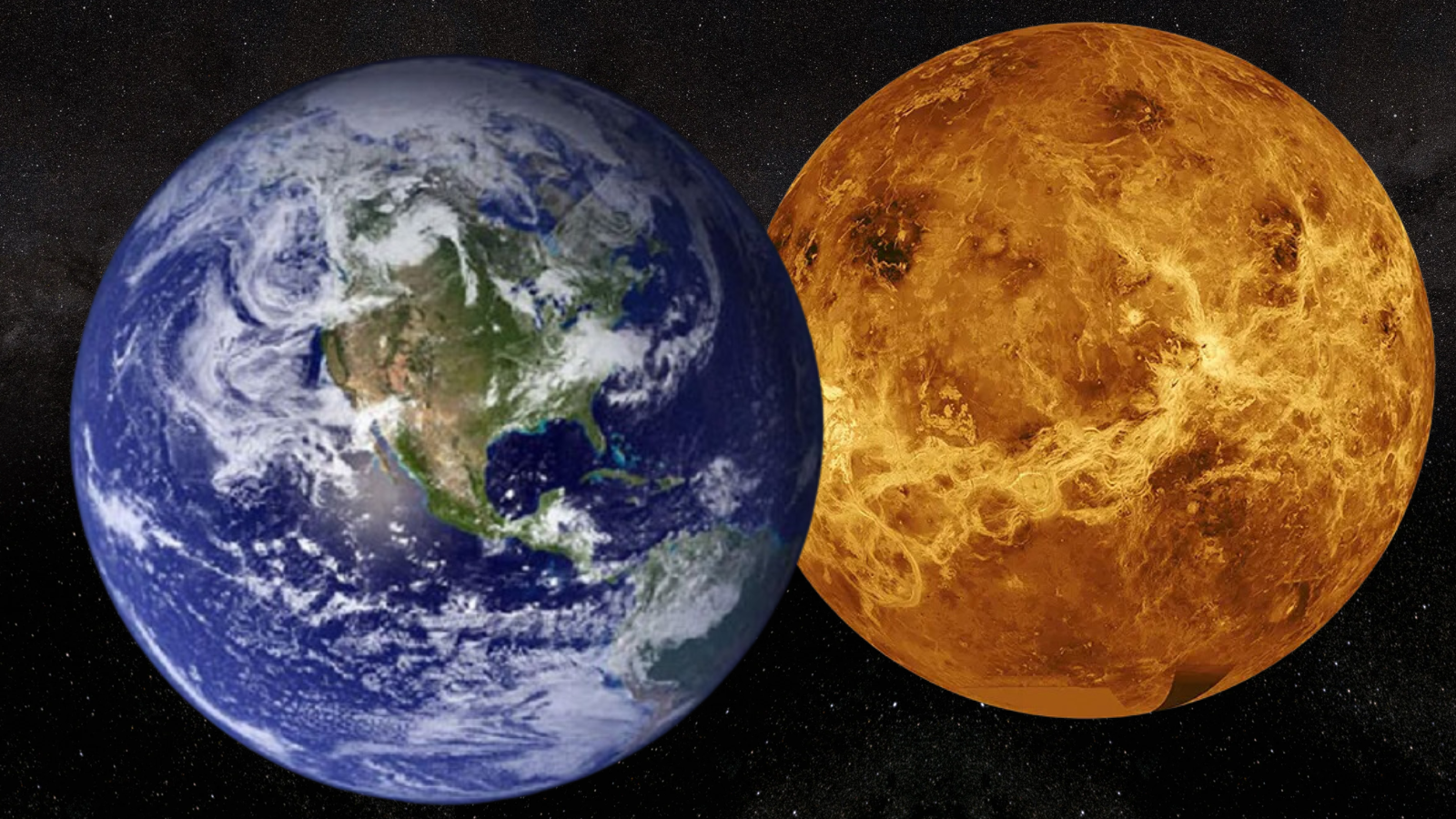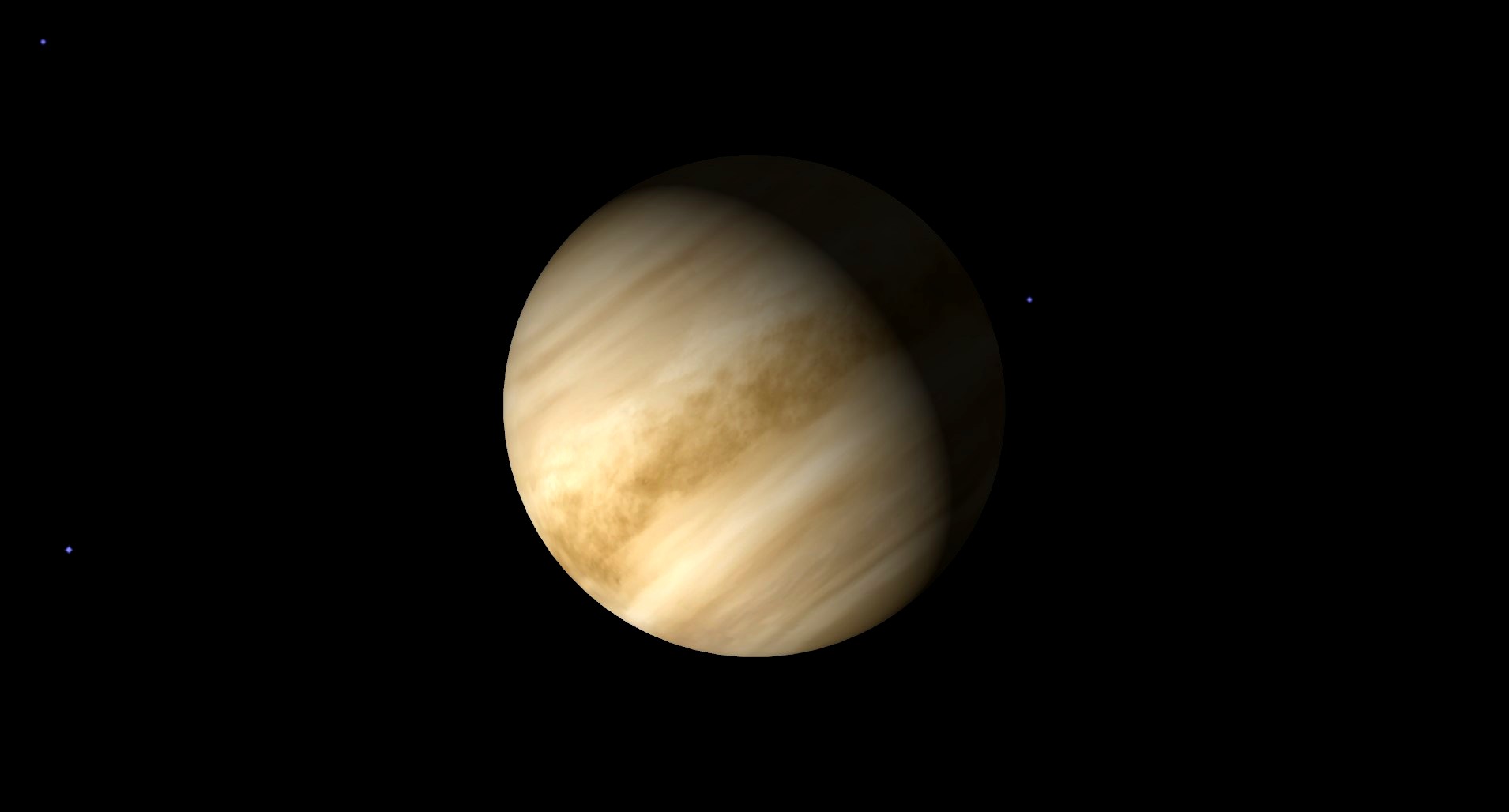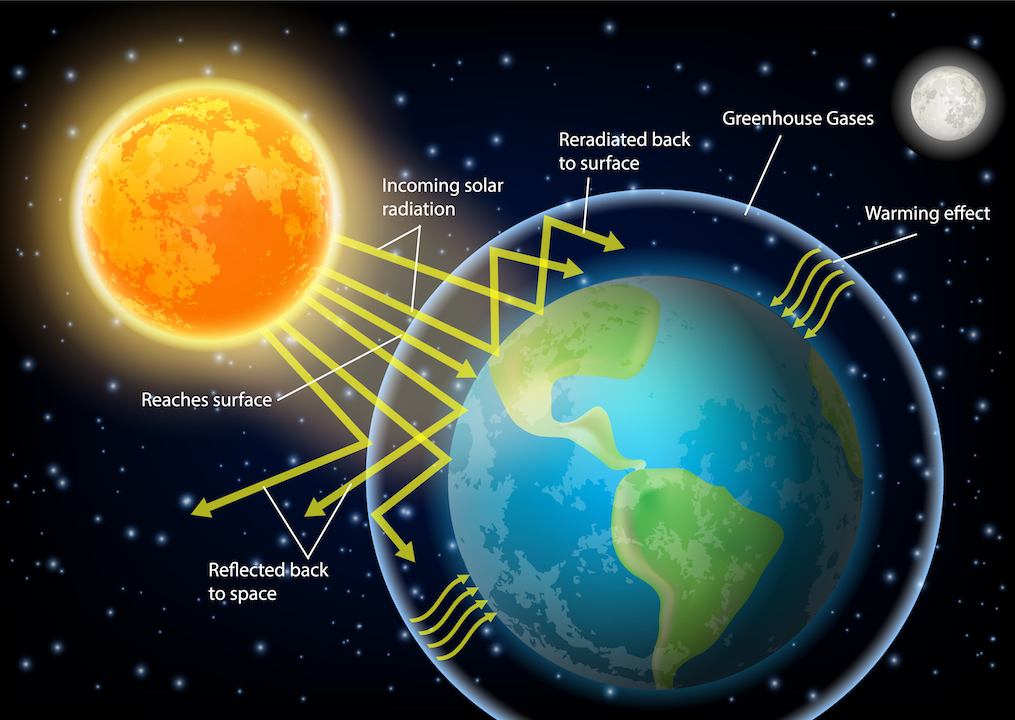Could Earth's 'evil twin' Venus carry a dire warning about climate change?
"Venus is certainly a good example of one extremity of the greenhouse effect run amok."

Breaking space news, the latest updates on rocket launches, skywatching events and more!
You are now subscribed
Your newsletter sign-up was successful
Want to add more newsletters?

Delivered daily
Daily Newsletter
Breaking space news, the latest updates on rocket launches, skywatching events and more!

Once a month
Watch This Space
Sign up to our monthly entertainment newsletter to keep up with all our coverage of the latest sci-fi and space movies, tv shows, games and books.

Once a week
Night Sky This Week
Discover this week's must-see night sky events, moon phases, and stunning astrophotos. Sign up for our skywatching newsletter and explore the universe with us!

Twice a month
Strange New Words
Space.com's Sci-Fi Reader's Club. Read a sci-fi short story every month and join a virtual community of fellow science fiction fans!
There is very little doubt that Earth is getting warmer, and that this warming is a result of human-driven gases in the atmosphere that store heat and redirect it toward our planet's surface. And Earth isn't the only planet to have experienced this so-called "greenhouse effect."
Venus is the hottest planet in the solar system and is often referred to as Earth's "evil twin." The two planets are similar in size and mass, with Venus only slightly more diminutive than Earth. They are also comparatively similar in their distances from the sun, and even started off looking remarkably similar to each other. Venus also has volcanoes like Earth, though it isn't clear if they are still active.
Yet something seems to have gone drastically wrong in the development of Venus, leaving it quite hellish and inhospitable. There is a good chance that "something" is an extreme runaway greenhouse effect, the consequence of an overabundance of atmospheric greenhouse gases.
Since the 1970s, satellites stationed in space have been vital in gathering a picture of how Earth is being impacted by global warming — and this warming is caused by the greenhouse effect. Humans are pumping increasing amounts of greenhouse gases into the atmosphere due to the burning of fossil fuels and, in turn, are forcing the planet to heat up far faster than it should.
However, as warnings come in from space agencies like NASA and the European Space Agency regarding the changes Earth is experiencing because of this greenhouse effect, an even starker and more extreme warning about the greenhouse effect may be coming from a world away from Earth. It could be coming from Venus. The causes of this greenhouse effect on Venus and Earth are different, to be clear. On Venus, the effect was natural and likely the result of excessive volcanism millions or billions of years ago — on Earth, it is the result of humankind's burning of fossil fuels.
Still, that doesn't mean Venus doesn't have lessons to impart about climate change and the need to stymie the flow of greenhouse gases into the atmosphere.
"Venus is certainly a good example of one extremity of the greenhouse effect run amok," Eryn Cangi, Research scientist at the Laboratory for Atmospheric and Space Physics, University of Colorado Boulder, told Space.com. "Venus is unique in our solar system in lots of ways. In many ways, it's similar to Earth but also very different. It's also one of just a few objects in our solar system with a substantial atmosphere, and it's by far the one with the thickest, hottest, most intense atmosphere.
"We can learn about terrestrial Earth-like planets by observing and studying Venus and interpreting it as an extreme case of what can happen."
Breaking space news, the latest updates on rocket launches, skywatching events and more!
Related: Venus' atmosphere: Composition, clouds and weather
What makes Venus so extreme?
The major differences between Earth and Venus mostly come down to the planets' differing atmospheres. Venus' atmosphere at the surface is 90 bars, which means that it is 90 times as thick as Earth's atmosphere. This means that, at the surface of Venus, there is a pressure similar to what's found in the ocean at a depth of around 2,550 feet (777 meters).
As you might imagine, for a planet experiencing a runaway greenhouse effect, Venus is also far hotter than Earth. The hottest temperature ever recorded on the surface of our planet was 134.1 degrees Fahrenheit (56.7 degrees Celsius) at the aptly named Furnace Creek Ranch in Death Valley, California on July 10, 1913.
Venus makes this seem like a winter walk in the park.
Temperatures on Earth's evil twin are estimated to reach around 870 degrees Fahrenheit (465 degrees Celsius), which is hot enough to melt lead. You could find similar temperatures here on Earth — but only if you were to climb into a pizza oven.
"This hot, thick atmosphere means Venus can't have any liquid water on the surface today, unlike Earth. But we have evidence that Venus has lost huge amounts of water over its history enough to suggest that ancient Venus might have had a similar amount of water as Earth does today," Cangi said. "However, we don't know if that water was ever in the liquid form — it may have only existed as steam in the atmosphere."
The second planet from the sun, Venus, is closer to our star than Earth is, so it is natural to expect it to be hotter. But Venus orbits the sun at a distance of around 70% of that between Earth and the sun, which isn't that much closer. Mercury is actually much closer to the sun than Venus, orbiting at a distance equivalent to around 33% of the distance between our planet and the sun — yet temperatures on the closest planet to the sun reach 800 degrees Fahrenheit (465 degrees Celsius).
So, there must be some reason behind Venus' heat other than its proximity to the sun. And, well, it turns out that the mystery of why Venus diverged from Earth in its early history, and the puzzle of how it can be hotter than the closest planet to the sun, both have the same solution: a runaway greenhouse effect.
A greenhouse in hell
Earth and Venus receive heat from solar radiation, but some of that radiation gets radiated back into space when sunlight is reflected back by clouds or ice. The planet's surface absorbs the heat that is not radiated back from space.
Certain gases in a planet's atmosphere can trap heat, affecting how much energy that planet loses back to space. They're called greenhouse gases.
Greenhouse gases can bounce the heat around in all directions, meaning some of the heat inevitably gets directed back to the surface of the planet, thereby raising the planet's overall temperature. The main greenhouse gases are water vapor, methane, nitrous oxide and carbon dioxide, which are released by the burning of fossil fuels.
Without this greenhouse effect, it is estimated that Earth's surface temperature would be tens of degrees lower. Without the greenhouse effect on Venus, the temperature on the second planet from the sun would be an estimated 700 degrees (390 degrees C) cooler.
Scientists aren't exactly sure when this greenhouse effect grabbed Venus in a stranglehold, with estimates ranging from 3 billion years ago to 250 million years ago. Quite how this "Great Climate Transition" took Venus from potentially habitable to a hellish wasteland is also debated, but one possibility is that a massive bout of volcanism greater than anything ever seen on Earth ripped open the crust of Venus and released vast amounts of greenhouse gases, particularly carbon dioxide.
As temperatures on Venus soared, liquid water would have boiled away, with water vapor joining other vast amounts of greenhouse gases in the Venusian atmosphere, causing more and more heat to be trapped, further driving up temperatures. This would have caused a feedback loop of more and more water evaporating, and more heat being trapped, creating a "runaway greenhouse effect."
Though Venus is a striking example of the greenhouse effect, it shouldn't serve as a "crystal ball" to predict the future of the Earth. The situation on our neighboring planet is different from that on Earth.
"I think it's pretty unlikely that Earth would end up the same as Venus, which has 90 Earth atmospheres worth of carbon dioxide. On Earth, carbon dioxide is only 0.04% of the atmosphere, and the orbital mechanics also play into the difference," Cangi explained. "That doesn't mean we shouldn't worry about climate change on Earth. Many societal and energy system changes that can help mitigate anthropogenic [human-caused] climate change are also good for the health of ourselves, our societies and our economies."
The unlikeliness of Earth in following Venus down the highway to climate hell also doesn't mean we can't learn anything about the climate dilemma facing our planet by investigating Venus. Several upcoming missions will visit Venus in an attempt to unlock the secrets of its violent conditions and its transformation into the solar system's most fearsome world.
NASA's Deep Atmosphere Venus Investigation of Noble Gases, Chemistry and Imaging (DAVINCI) spacecraft will be of particular interest. Set to reach Venus in the late 2030s, DAVINCI will be the first spacecraft to drop a probe through the dense atmosphere of this hellish world, gathering data about its structure and composition. Though this probe isn't predicted to survive its fall, scientists are prepared for the possibility that it could briefly survive the crushing atmospheric pressures of Venus to gather data directly from the Venusian surface for humanity.
"I'm interested in anything we don't understand, so other planets are perfect! Venus is especially fascinating because there's still so much we don't know. I'm very excited to learn more about the surface of Venus from upcoming missions, especially the extent of present-day volcanism," Cangi concluded. "Below the clouds, we know so little about the lower atmosphere. I'm very interested in what makes planets habitable or not and how that can change over time, so Venus is a great case study and example of a planet that could have once been habitable but isn't today."
Though this could reveal more about the greenhouse effect on Venus, for us to learn really learn more about climate change and the greenhouse effect's impact on our own planet, we depend on space monitoring and the kind of technology World Space Week will highlight over the next few days.
This article is part of a special series by Space.com in honor of World Space Week 2024, which ran from Oct. 4 to Oct. 10 and explored how space technology can help fill the toolboxes of climate scientists.

Robert Lea is a science journalist in the U.K. whose articles have been published in Physics World, New Scientist, Astronomy Magazine, All About Space, Newsweek and ZME Science. He also writes about science communication for Elsevier and the European Journal of Physics. Rob holds a bachelor of science degree in physics and astronomy from the U.K.’s Open University. Follow him on Twitter @sciencef1rst.




